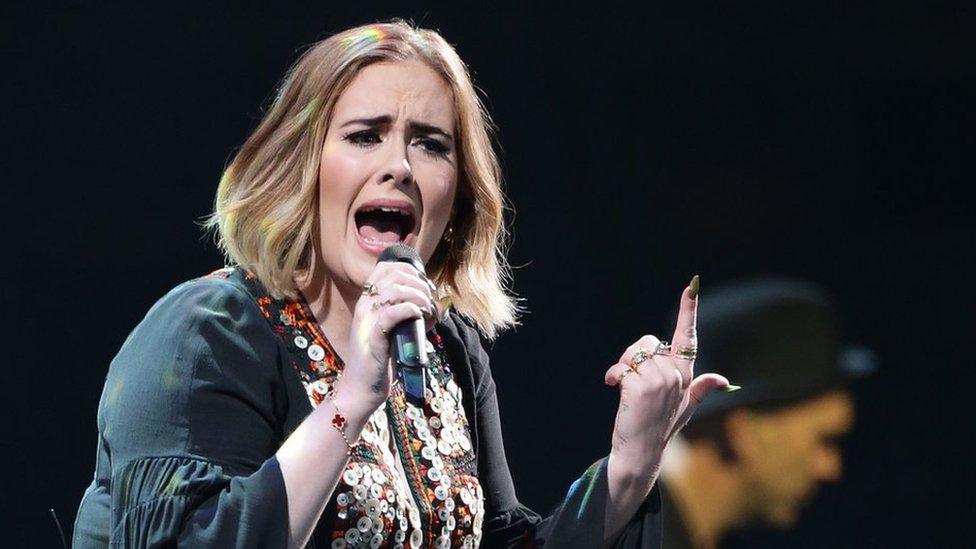'So did I': The words that helped a mum through postnatal depression
- Published
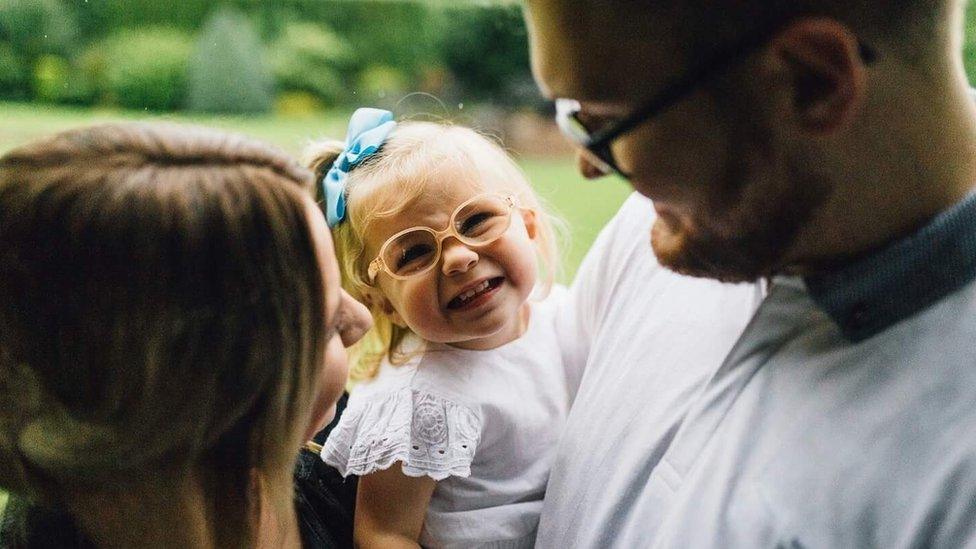
Lauren says she felt like she was not good enough to be a mum to daughter Evie
Looking at her six-month-old baby in a Moses basket, Lauren Murchison was overcome with the feeling that she could not cope with being a mum.
She shut herself away from family and friends and experienced days when she would not eat properly or get dressed.
Suffering postnatal depression after the birth of her daughter Evie, 21-year-old Lauren even attempted suicide.
After singer Adele opened up about her own battle with postnatal depression, Lauren and other mums have been telling BBC News about their struggle with the illness - and how they managed to get through it.
"The scariest thing I had ever felt," says Lauren, from Carlisle, Cumbria, adding that she realised that she felt nothing for her daughter, who might as well have been "a stranger's child".
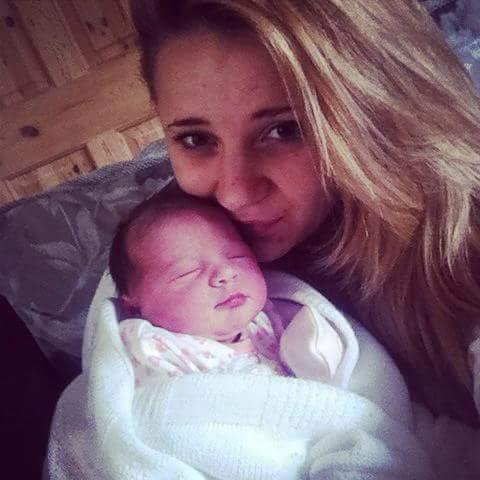
"Evie was sleeping in her Moses basket and I just felt this panic come over me. I thought, 'I can't do it,' and it completely threw me.
"The only way I can describe it is blind panic. I almost felt like the wind had been knocked out of me. It felt like somebody had punched me in the chest. It was the scariest thing I had ever felt.
"I didn't feel anything towards my baby. I went through every single motion of what a mum would do, I would make sure she was changed and fed, but there was no feeling behind it.
"She could have been anybody else's child at that point. I felt the same as a I would do to a stranger's child.
"I knew I adored her but I didn't feel like it."
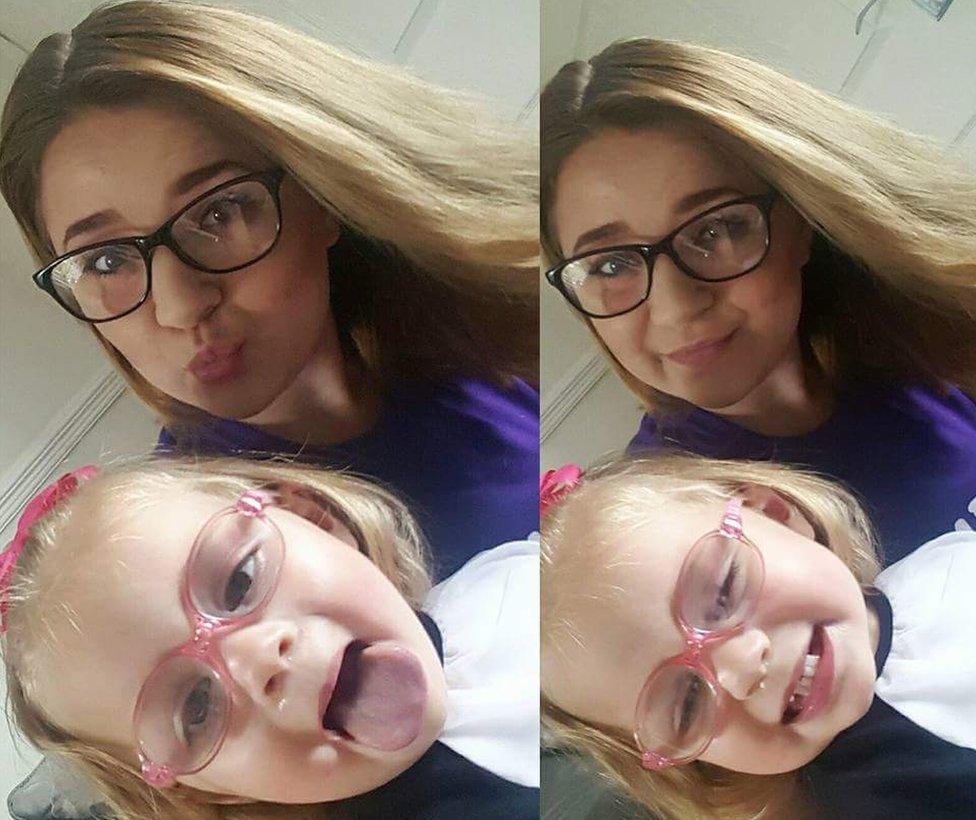
Lauren says she "completely stopped" speaking to her family and friends as she felt like they would judge her as a bad mum.
She stopped going out and would instead lie on the sofa watching the TV while Evie, now two, went down for her morning nap.
The depression was also difficult for her husband Duncan, 22, she says, because he did not know how to help her through it.
Her illness reached a point where she felt like she was "not good enough" to be a mum, leading her to attempt suicide.
When she was later discharged from hospital, she received therapy and medication for her depression and looked for further help online.
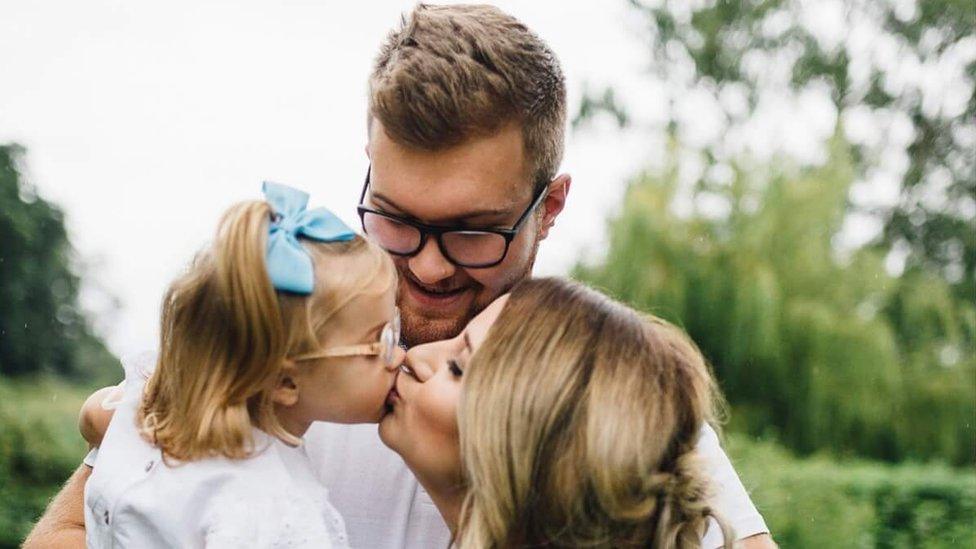
She says one of the biggest steps to her recovery was seeking support from other mums who had experienced similar feelings, through the PANDAS Foundation.
Lauren says: "The best thing I could've ever done is spoken about it. When I started to feel better, I started to get myself out to meet people in the local area and I just thought, I'm going to admit what happened.
"I said, 'Yeah, I had postnatal depression really bad.' The amount of women who said, 'Oh my god, so did I.' That one person who said 'So did I,' turned into 10 people that said 'So did I.'
"I didn't feel quite as alone. My family rallied around me and I don't think I would've got through it without my husband. The best thing for me was communicating and opening up."

'You're not alone'
Following Adele's admission, other mums have also reached out to share their experiences of postnatal depression and the ways they have come through it.
Mothers praise Adele for admission of postnatal depression
Jessica Forster tells the Victoria Derbyshire show that she set up a Facebook group to reach out to other mums.
She says: "I found through to talking to other mums I wasn't alone, that I wasn't strange and it is quite common."
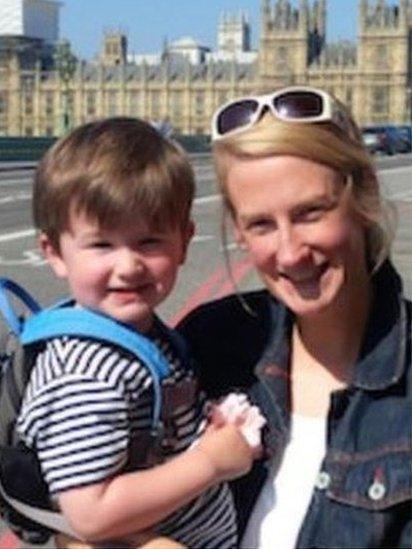
Lindsay Robinson and her son Reuben
Lindsay Robinson, who is married to Belfast East MP Gavin Robinson, says sharing her feelings with others through the website Have you seen that girl?, external has aided her recovery.
"What has helped is the positive sense of a community and support and not being alone. Amongst the common themes are being relieved that someone else has been there and you're not alone," she tells the BBC.
"Getting some 'me time' or go for a run, have a bath, watch TV, it's time to be you and take care of yourself. It takes off the pressure. I recommend that."
Rachel Davies, who is currently suffering from depression, says parents should not feel guilty about asking for help.
She adds: "If I have a bad day with awfully black thoughts I find that moving furniture around in the house helps.
"Hearing my six-year-old tell me he loves me, and my nine-week-old has just started giggling, makes everything worth it. Mums and dads must not be afraid to ask for help."
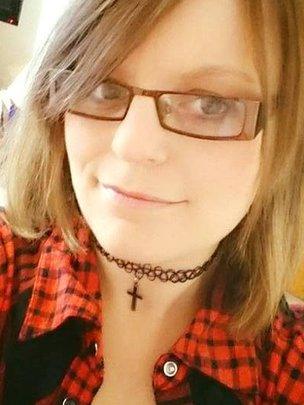
Rachel Davies
Mum of two Katie Willis, from Newton Abbot, says that talking to friends, family and your doctor is the key.
She says: "I bottled it up to start with until my partner made me a doctor's appointment. They were brilliant."
Emma Goode, who has two children, also says that having a supportive doctor helped her through her depression.
"Thanks to her prescribing counselling, antidepressants, and with the help of my parents, good diet and exercise, I've come a long way."
The National Childbirth Trust says signs of postnatal depression, external can include feeling low or tired, feeling unable to cope, wanting to cry and having obsessive and irrational thoughts.
The charity's head of knowledge, Sarah McMullen, advises those experiencing feelings of depression to talk to someone they trust such as as a friend or family member, a health visitor, GP or midwife.
She also encourages new mums to take up offers of help with their child, and to make time for themselves for activities such as a bath, a walk or exercise.
"Many women can also struggle to know if this is a normal part of being a mum, and is it something to be worried about. If anyone is thinking or feeling that, it's important to talk to somebody."

- Published1 November 2016
